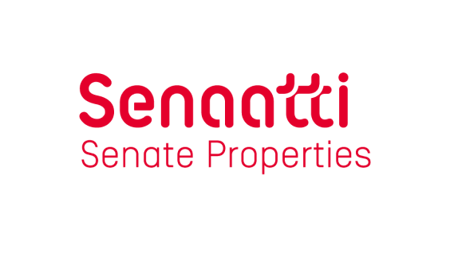
Client:Senate Properties Finland
Region:Europe
Industry:Public Sector
RPA Brings Improved Quality and New Ways of Working for Senate Properties

8
automated processes in production
7
processes in development
30+
processes identified and prioritized in roadmap
Client Overview
Senate Properties is the work environment partner and specialist of the Finnish government, a pioneer of new ways of working and work environments.
Partner

Senate Properties is the work environment partner and specialist of the Finnish government, managing 9000 properties across the country. Its objective, in cooperation with a network of responsible partners, is to provide its customers with work environments that help to improve their efficiency and save on-premises costs.
The vision is that the Finnish government is a pioneer of new ways of working and work environments. Senate aims to employ digitalization to fulfill this vision. Mr. Esapekka Kuikka, Head of Development team, says that Senate Properties has noticed the opportunities offered by robotic process automation (RPA) and artificial intelligence (AI) as part of the promotion of digitalization. “We started with a pilot project and opportunity mapping for RPA and found more than 200 possible applications for software robotics”, Kuikka tells. After the pilot they organized a public tender with a strong focus on quality. “Efima won the tender, and we got a competent partner for the project”, Kuikka concludes.
When people trust that RPA makes their lives easier and automates repetitive routine tasks, they build a positive attitude towards it.
Esapekka Kuikka • Head of the Development team, Senate Properties
Efima had already proven itself to Senate in a successful financial ERP system implementation, and collaboration with RPA seemed like a natural continuation to the partnership. One of the keys to success in the ERP project was a strong internal investment of resources, and Senate decided to use the same recipe again. Soon Eemi Toivanen was recruited as a Robotics specialist to the Senate team.
Senate properties have also encouraged many people across organizational boundaries to participate in the project. A smaller team led by Toivanen maps potential applications, and once that’s done, the IT department and main users from all over the organization are involved. Know-how on robotics has been spread through specific trainings.
According to Toivanen, collaboration with a competent partner works well. “The core team consists of us and people from our partner, and together we develop our understanding of RPA, and get better in the field of software robotics. Predicting and challenging the customer’s needs is important", Kuikka points out.
The importance of communications and good ground work
Kuikka raises internal communications as one of the key factors in change management. In Senate, they've been informed about the first steps in robotic process automation throughout the organization, and even now Toivanen puts emphasis on active internal communications, telling them about robotics and its applications.
It’s also important to prepare carefully for the first RPA applications, says Toivanen. “You have to make sure that the robot has all the necessary rights and accesses and the capability to communicate with the system. Once the basics have been built into one system, robotizing the next one is easier.”
We believe that software robotics makes the employees’ everyday life easier and automates repetitive routine tasks.
Esapekka Kuikka • Head of the Development team, Senate Properties
RPA requires the right kind of attitude. “When people trust that RPA makes their lives easier and automates repetitive routine tasks, they build a positive attitude towards it”, Kuikka says. “From the very beginning we have been in touch with new personnel to see what in their processes could be robotized. Everyone has been enthusiastic and started to brainstorm new application areas”, Toivanen continues.
The vision is automated processes and new ways of working
According to Toivanen, software robots are a welcome colleague all over the organization, and there's no shortage of RPA applications. “We started from 200 applications based on the kick-off mapping, and new ideas pop up all the time. Prioritizing applications and making choices is a continuous part of the job”, Toivanen describes. Senate decided to start with “easy wins”, through which new experiences, learnings and successes could be achieved.
A logical start for RPA was found in financial management, where processes typically include a lot of repetitive tasks. “The first applications in financial management have been really well received. I’ve even heard hoorays shouted”, Toivanen rejoices. According to Kuikka, successes feed the enthusiasm, and the desire to do new things with the help of robotics constantly increases.
In the future, Kuikka and Toivanen see RPA as an increasingly more important part of Senate’s operations. Even now, RPA applications have spread outside financial management, for instance in document and customer relationship management and in HR processes. “In a few years we will see robotics as part of workflows in everyday life, and robotics will be visible all over the organization. With artificial intelligence, we can complete RPA in the future in tasks, where it is not enough as such”, Kuikka envisions. Toivanen agrees: “Robots as colleagues will soon be part of our everyday life here in Senate Properties”, he concludes.
Related case studies
Ready for your own case study?
Speak to our team of knowledgeable experts and learn how you can benefit from agentic automation.






